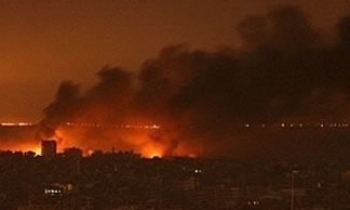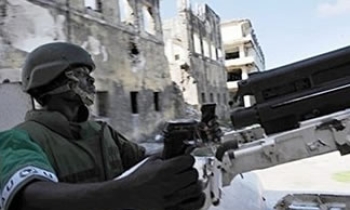As politicians go, Priya Ranjan Das Munshi is an affable man. His ego is not enormous; he doesn't bristle at criticism; he's the sort of chap you can share a joke or two with, and sometimes he will even laugh at himself. He's fired by football as much as he's driven by politics and his geniality is germane to his dexterity as Parliamentary Affairs Minister.
So what is he doing defending what could turn out to be the most absurd and autocratic legislation, if it is allowed to go through?
The Broadcasting Services Regulation Bill, 2006, is not just preposterous; it is dangerous.
If you think that the draft bill is technical mumbo-jumbo that only big media barons and self-important journalists need to be worried about, junk that thought. This is about you and me, and our fundamental freedoms.
Yes, the bill aims to dismantle, or at the very least, challenge media monopolies by restricting cross ownership. But frankly, while this may have got business houses tied in a twist, it's not the part that worries me. In fact some would even argue that the tyranny of the so-called free market is just as antithetical to independent journalism, as overweening government control can be. So the jury is out on that one.
It's the attempt to annihilate editorial autonomy that there can be no two views on.
Here's the part of the draft bill that would have been funny were it not so frightening. Next time there is a "war or a natural calamity of national magnitude" the government may have the right to "take over the control and management of any of the broadcasting services;" even suspend operations if the channel is found to be harming "public interest".
So far, India's first televised war has also been its only one. I reported from the frontline during the Kargil conflict of 1999. It was an age before instant connectivity and portable satellites, and still unused to television, the Army was quite frankly, alarmed at our presence. No one knew what to do with us, and so, by sheer accident we were set free in the battle zone.
Everyday scores of journalist walked the thin line between life and death. We braved bullets, ducked shells, and learnt to sleep under an open sky or behind a boulder, without food, water or bathrooms. But at the end of it, the ordinary soldier was no longer nameless or faceless; the war finally had a human face. The battle was not just about gun positions and recaptured peaks; it was about people; the tears and tribulations, the conflict and courage of young men sent out to die.
There were no rules then to "manage the media", and yet I do not remember a single instance where national interest was compromised. Instead, an initially sceptical army conceded that we had been "force multipliers", and the debate suddenly shifted. The politically correct lobby then began attacking us for "glamourizing" the war.
Ironic then, that the government is worried about controlling us during a hypothetical next war. Or is it the questions we raised after Kargil that make politicians and bureaucrats nervous - debates over intelligence lapses and what drove India to a bloody war to begin with?
The natural calamity clause is even more bewildering. During every recent disaster, from earthquakes to the Tsunami, it is the immediacy of television that has pushed people out of their passiveness; it is the evocative nature of television stories that has propelled ordinary citizens into donating funds, and sometimes, even rolling their sleeves up to volunteer for relief and rehabilitation. During the Tsunami, television journalists waded through water and rotting flesh to reach the worst hit interiors much before district officials could. Or is that the real problem?
The 24-hour news channel may be a monster, but it's also a relentless beast that lets no detail escape its gaze.
In my view, many lives may have been saved had the 1984 Delhi riots taken place in the age of private television; the scrutiny would have been just too intense and constant. Just as it was in Gujarat. But look at what the draft bill empowers the government to do. "Authorized officials" can actually shut down transmission if it promotes "disharmony, enmity, hatred or ill will" between communities. This was exactly the excuse Narendra Modi used in 2002 when he briefly blocked television channels that had exposed the complicity of his administration in the riots. Of course at that time, the Congress was on the other side of the political divide and was as outraged as we are now.
And just who are these "authorized officials"? They include district magistrates and senior police officers, making it impossible for television to uncover the role of the bureaucracy and the police, during a riot. Under the bill, these officials even have the power to "inspect, search and seize equipment".
So will television journalists constantly be waiting for that knock on their door?
Speaking on NDTV, Priya Ranjan Das Munshi sounded vaguely embarrassed about many of these provisions. He insisted that the bill was not targeted at "established national networks" and the aim was only to reign in cable operators and the hundreds of local channels the industry has spawned in the last decade, often in regions of conflict and communal strife. Besides, he insisted this was only a draft bill; a mere starting point for discussion, not necessarily the bill that would make it to Parliament.
But in a democracy, how in the world can we allow such dictatorial notions to shape the contours of any debate?
Does private television, still only a decade old in India, need some sort of regulation?
Yes.
Is it the government's job to play gatekeeper?
Absolutely not.
Admittedly, the ever-proliferating world of television often slides into sleaze and banality, and on the odd occasion can even be inflammatory. The answer is for the television industry to build consensus and create guidelines of its own; perhaps even a media council that would play ombudsman, and have the final word on a code of content. But we cannot allow politicians and bureaucrats to set that agenda for us.
A few months ago, when the Centre was struggling to defend its role in the office of profit controversy, Priya Ranjan Das Munshi was in our studio, passionately defending his party. "Bullshit", he said, on national television, denying that any ordinance had ever been planned.
That's exactly the word I would use for this outrageous and undemocratic draft bill.
But if this bill does go through, that's the sort of language that the bureaucrats in the I&B Ministry would find obscene. And then the Minister and I would both be in trouble.









